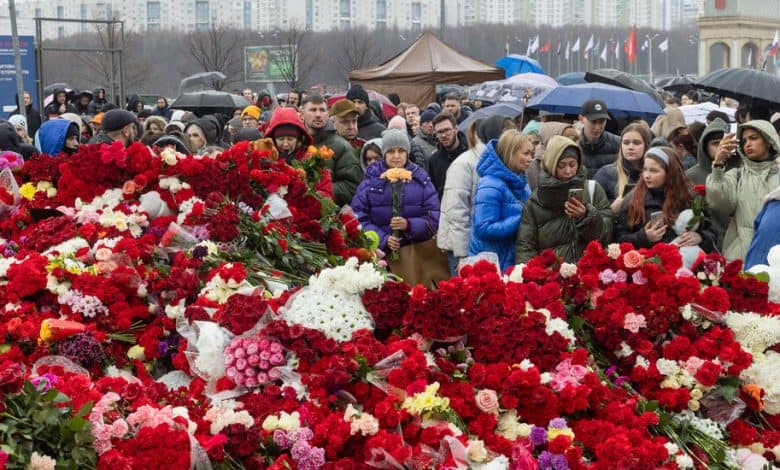Monday Briefing: Two Charged in Moscow Attack


Russia observed a national day of mourning yesterday.Credit…Nanna Heitmann for The New York Times
Two men were charged in concert attack near Moscow
Russia mourned after at least 137 people were killed when gunmen opened fire at a concert hall in a Moscow suburb, and investigators began bringing charges against those they said were responsible.
Russian state media reported that two men had been formally charged with committing a terrorist act. The men, who face a maximum of life in prison, were identified as Dalerjon Mirzoyev and Saidakrami Rachabalizoda.
There are two primary narratives about the violence on Friday night, Russia’s deadliest terrorist attack in 20 years. ISIS claimed responsibility for the attack, and American officials say it was the work of Islamic State Khorasan, or ISIS-K, an Islamic State offshoot that has been active in Pakistan, Afghanistan and Iran. But on Saturday, Russia’s president, Vladimir Putin, did not mention ISIS in his first public remarks on the tragedy. Instead, he hinted at the possible involvement of Ukraine.
Many Russian nationalist commentators and ultraconservative hawks have also pushed the idea that Ukraine was the obvious culprit, and state news outlets barely mentioned that ISIS had claimed responsibility for the attack. Russia has not presented any evidence of Kyiv’s involvement, and Ukrainian officials have ridiculed the accusations. U.S. officials have also said that there was no indication that Ukraine played any role.
The attack dealt a political blow to Putin, a leader for whom national security is paramount.
“Russia, now, is spending about 30 percent of its budget on the military, the security services and the correctional institutions,” Valerie Hopkins, who covers Russia, told us. “It’s a huge percentage of the state’s expenditure, and it’s a gigantic apparatus. I think that there are people who have questions about how it was possible that it failed.”
What is ISIS-K? The Islamic State Khorasan was founded in 2015 by disaffected members of the Pakistani Taliban, who then embraced a more violent version of Islam. In January, the group said it was behind a bombing attack that killed 84 people in Kerman, Iran.
